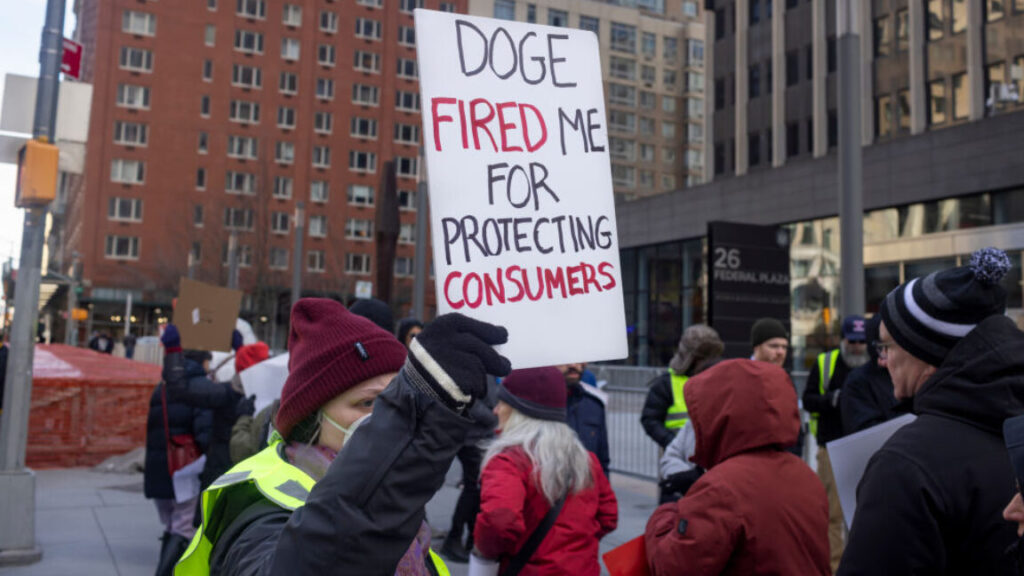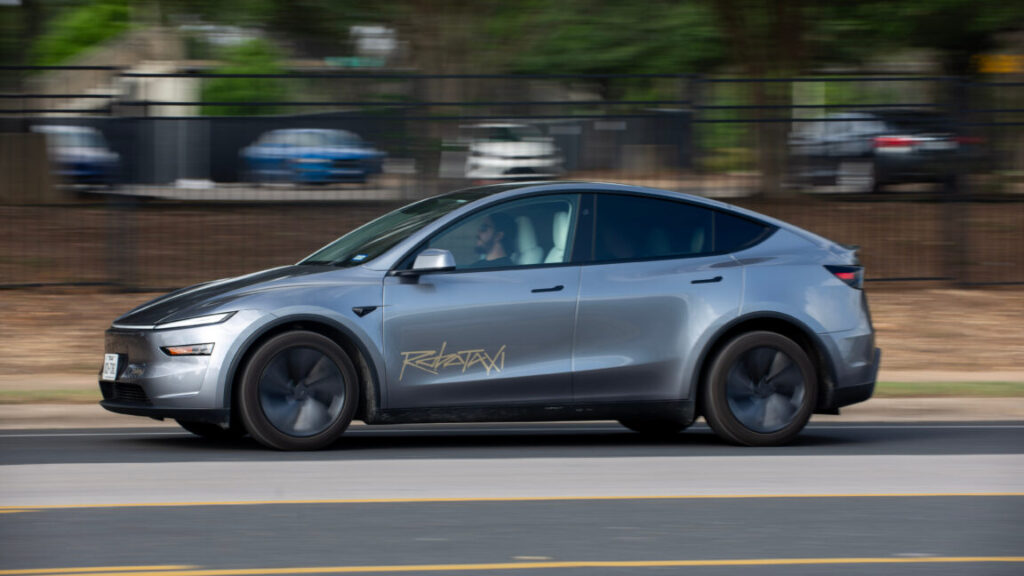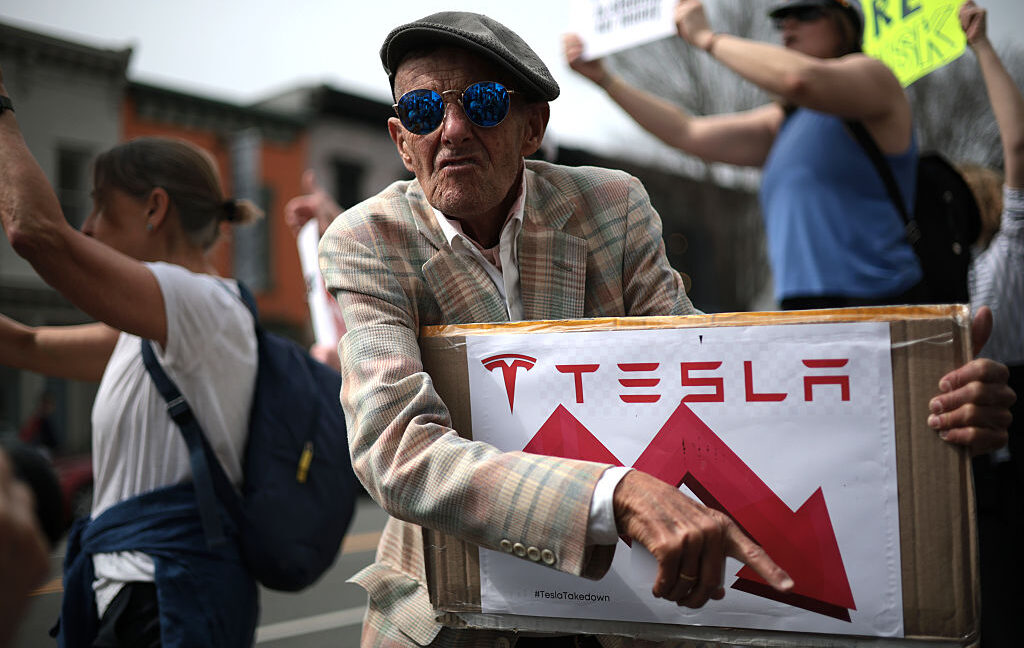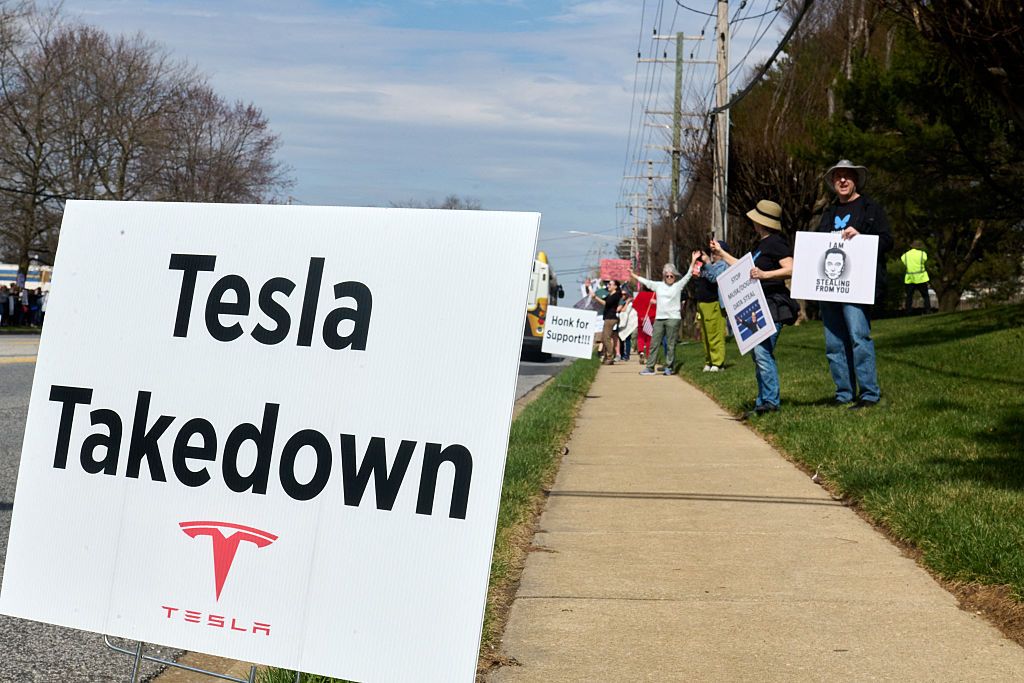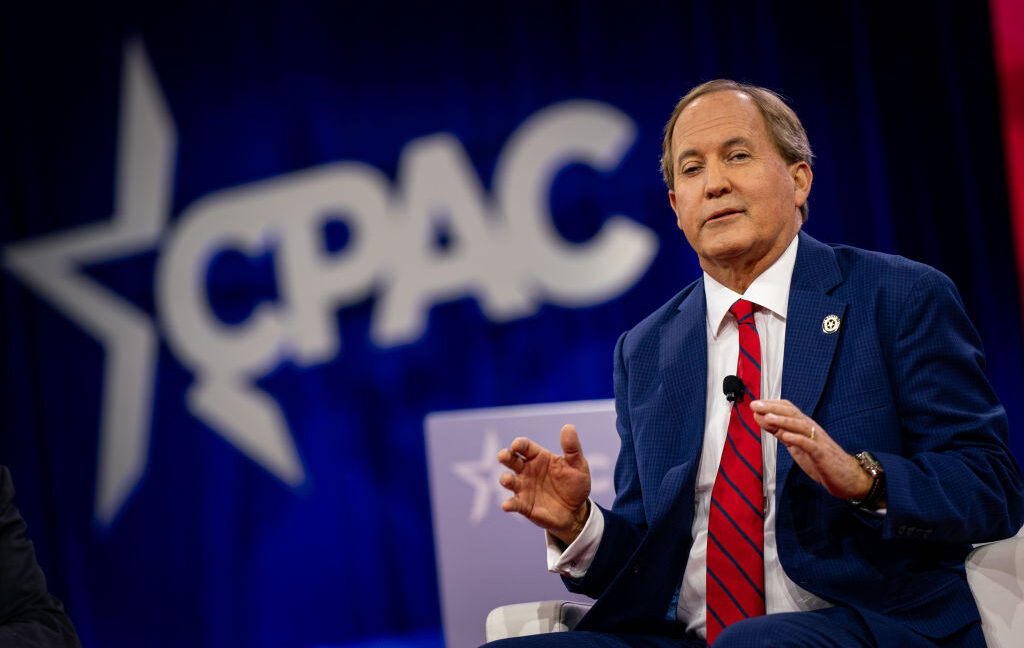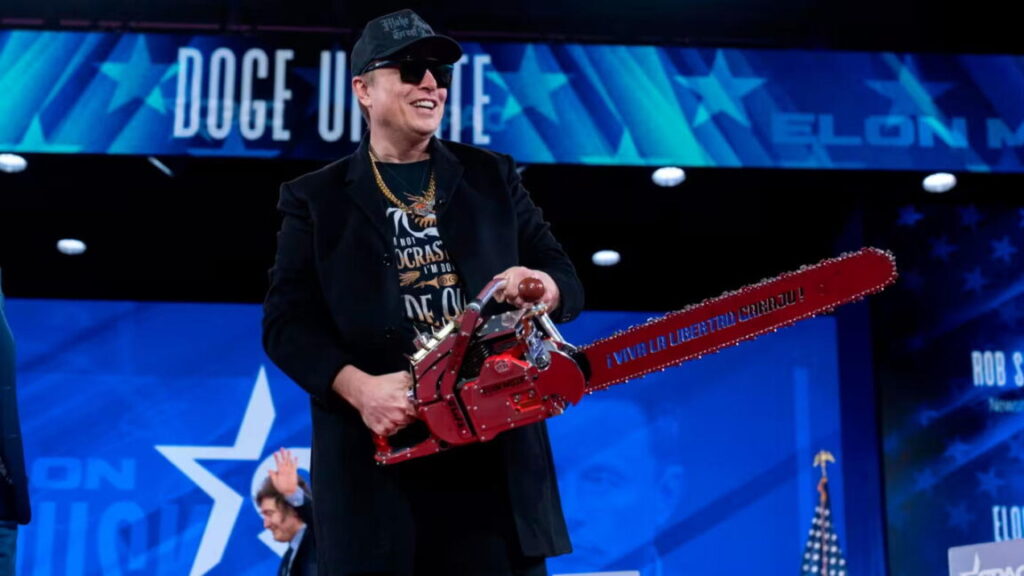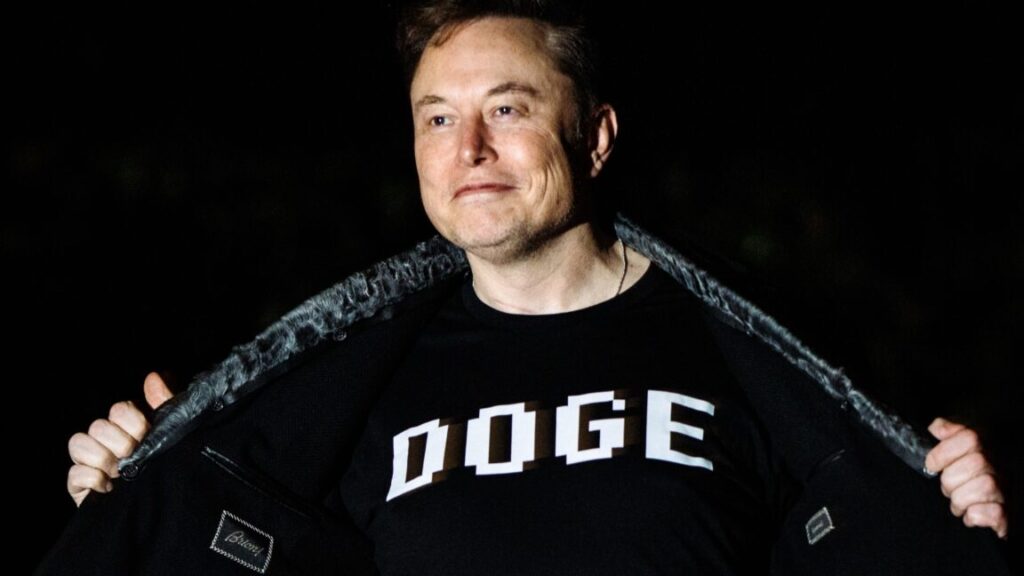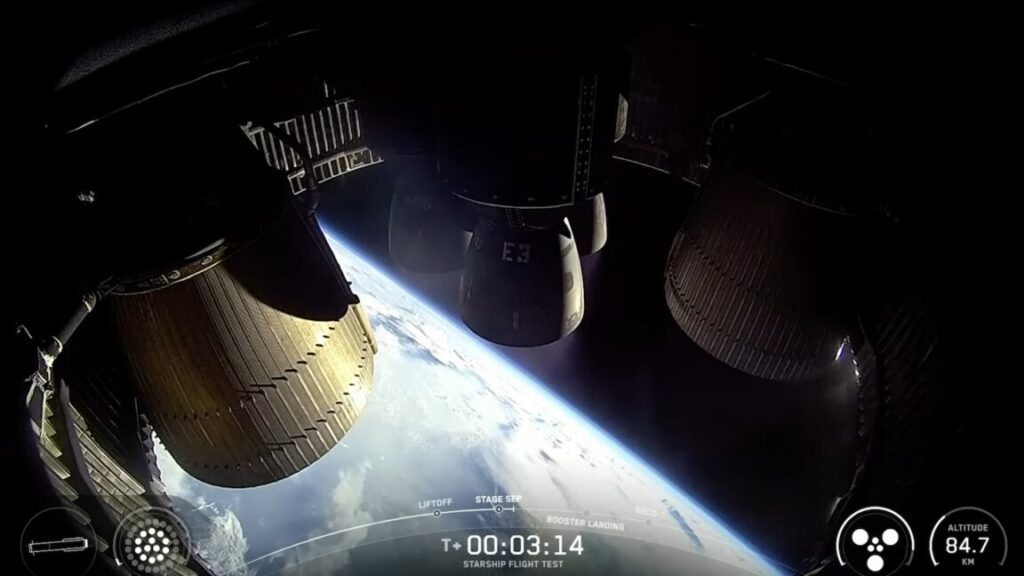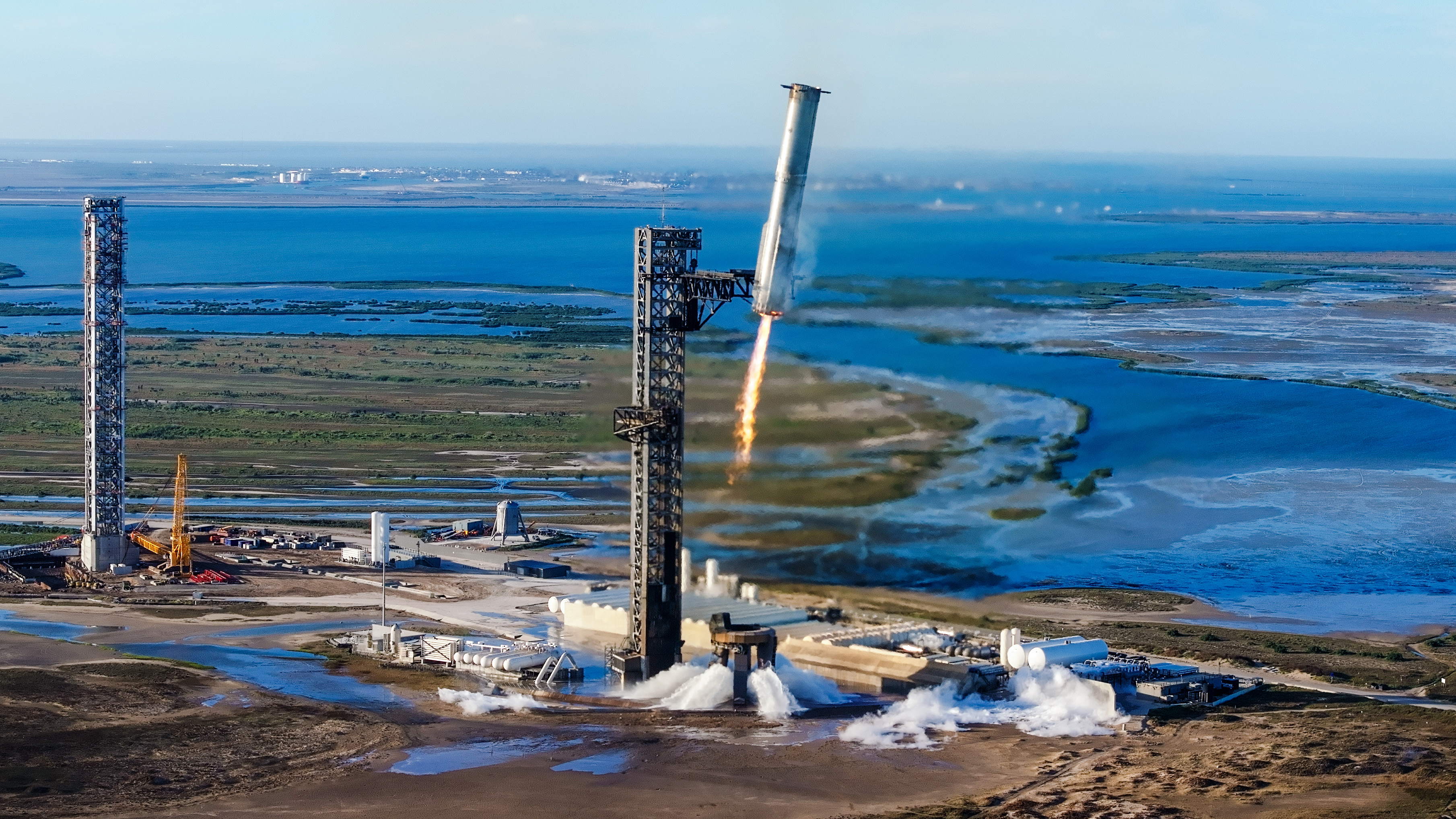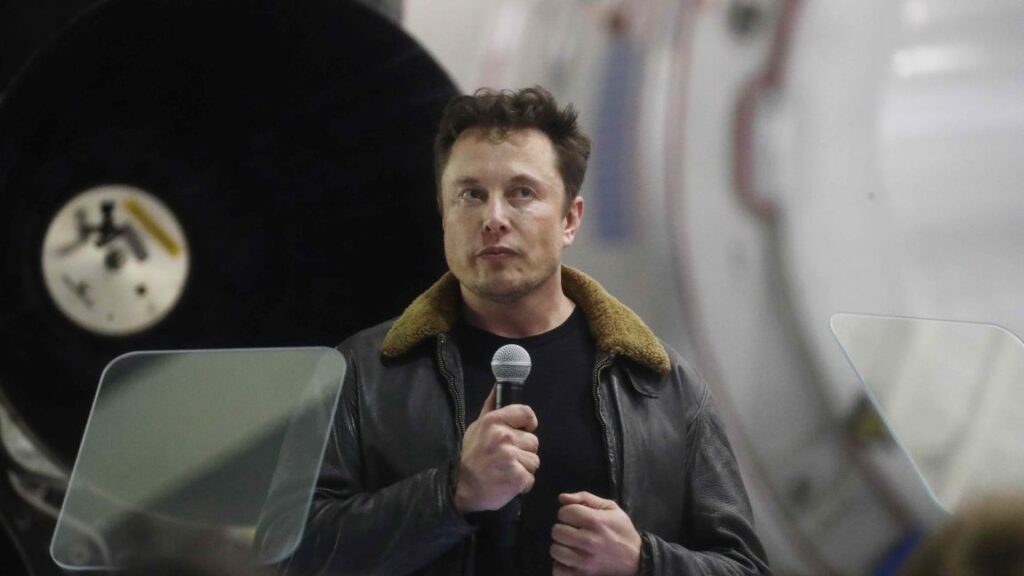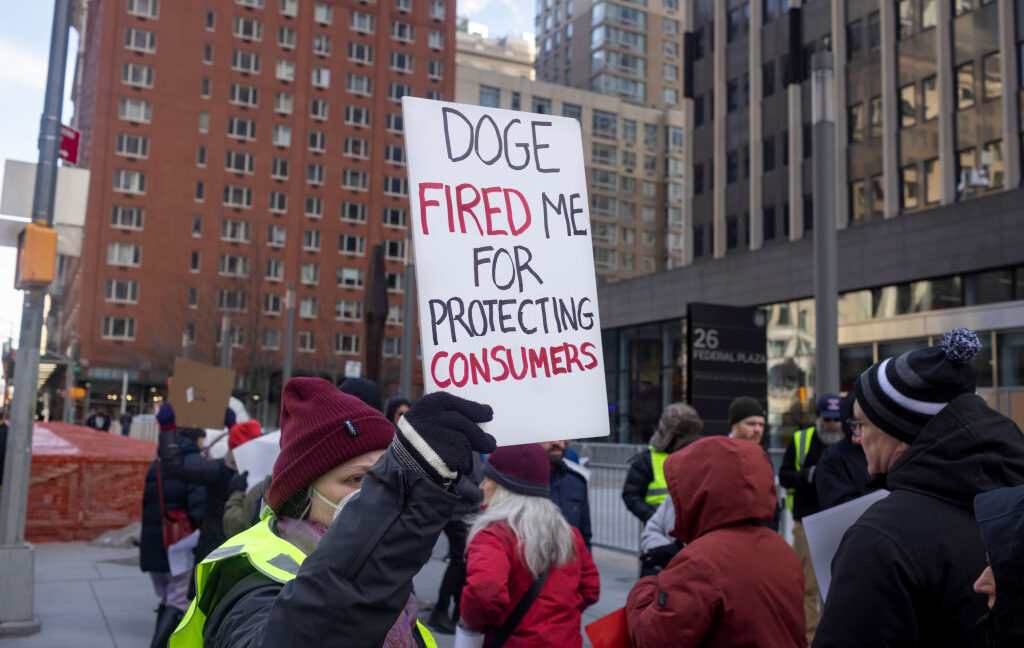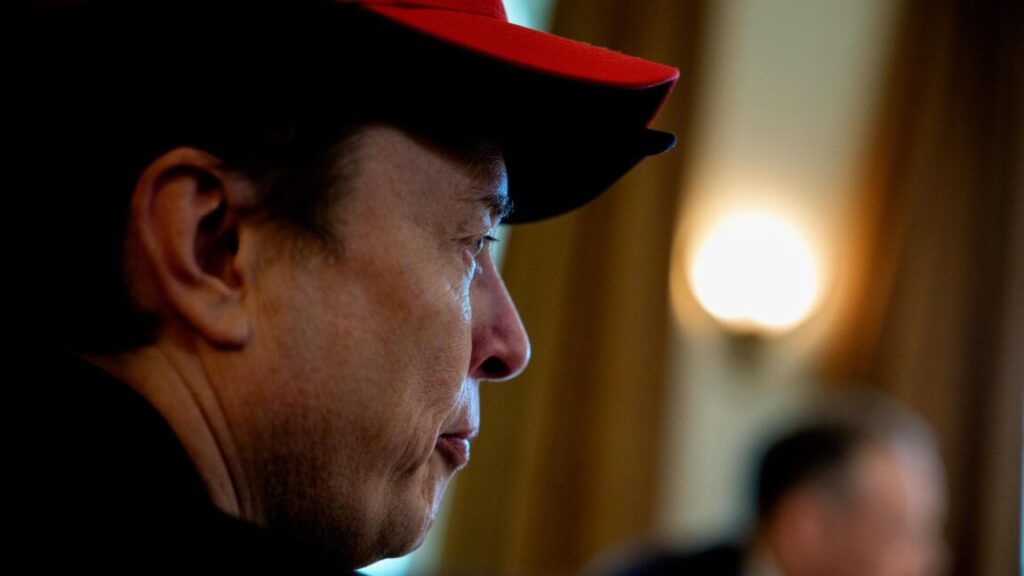Is DOGE doomed to fail? Some experts are ready to call it.
Trump wants $45M to continue DOGE’s work. Critics warn costs already too high.
Federal workers and protestors spoke out against US President Donald Trump and Elon Musk and their push to gut federal services and impose mass layoffs earlier this year. Credit: Pacific Press / Contributor | LightRocket
Critics are increasingly branding Elon Musk’s Department of Government Efficiency (DOGE) as a failure, including lawmakers fiercely debating how much funding to allot next year to the controversial agency.
On Tuesday, Republicans and Democrats sparred over DOGE’s future at a DOGE subcommittee hearing, according to NextGov, a news site for federal IT workers. On one side, Republicans sought to “lock in” and codify the “DOGE process” for supposedly reducing waste and fraud in government, and on the other, Democrats argued that DOGE has “done the opposite” of its intended mission and harmed Americans in the process.
DOGE has “led to poor services, a brain drain on our federal government, and it’s going to cost taxpayers money long term,” Rep. Suhas Subramanyam (D-Va.) argued.
For now, DOGE remains a temporary government agency that could sunset as soon as July 4, 2026. Under Musk’s leadership, it was supposed to save the US government a trillion dollars. But so far, DOGE only reports saving about $180 billion—and doubt has been cast on DOGE’s math ever since reports revealed that nearly 40 percent of the savings listed on the DOGE site were “bogus,” Elaine Kamarck, director of the Center for Effective Public Management at the Brookings Institute, wrote in a report detailing DOGE’s exposed failures.
The “DOGE process” that Republicans want to codify, Kamarck explained, typically begins with rushed mass layoffs. That’s soon followed by offers for buyouts or deferred resignations, before the government eventually realizes it’s lost critical expertise and starts scrambling to rehire workers or rescind buyout offers after “it becomes apparent” that a heavily gutted agency “is in danger of malfunctioning.”
Kamarck warned that DOGE appeared to be using the firings of federal workers to test the “unitary executive” theory, “popular among conservatives,” that argues that “the president has more power than Congress.” Consider how DOGE works to shut down agencies funded by Congress without seeking lawmakers’ approval by simply removing critical workers key to operations, Kamarck suggested, like DOGE did early on at the National Science Foundation.
Democrats’ witness at the DOGE hearing—Emily DiVito of the economic policy think tank Groundwork Collaborative—suggested that extensive customer service problems at the Social Security Administration was just one powerful example of DOGE’s negative impacts affecting Americans today.
Some experts expect the damage of DOGE’s first few months could ripple across Trump’s entire term. “The rapid rehirings are a warning sign” that the government “has lost more capacities and expertise that could prove critical—and difficult to replace—in the months and years ahead,” experts told CNN.
By codifying the DOGE process, as Republicans wish to do, the government would seemingly only perpetuate this pattern, which could continue to be disastrous for Americans relying on government programs.
“There are time bombs all over the place in the federal government because of this,” Kamarck told CNN. “They’ve wreaked havoc across nearly every agency.”
DOGE spikes costs for Americans, nonprofit warns
Citizens for Ethics, a nonpartisan nonprofit striving to end government secrecy, estimated this week that DOGE cuts at just a few agencies “could result in a loss of over $10 billion in US-based economic activity.”
The shuttering of the Consumer Financial Protection Bureau alone—which Musk allegedly stands to personally benefit from—likely robbed American taxpayers of even more. The nonprofit noted that agency clawed back “over $26 billion in funds” from irresponsible businesses between 2011 and 2021 before its work was blocked.
Additionally, DOGE cuts at the Internal Revenue Service—which could “end or close audits of wealthy individuals and corporations” due to a lack of staffing—could cost the US an estimated $500 billion in dodged taxes, the nonprofit said. Partly due to conflicts like these, Kamarck suggested that when it finally comes time to assess DOGE’s success, the answer to both “did federal spending or the federal deficit shrink?” will “almost surely be no.”
As society attempts to predict the full extent of DOGE’s potential harms, The Wall Street Journal spoke to university students who suggested that regulatory clarity could possibly straighten out DOGE’s efforts now that Musk is no longer pushing for mass firings. At the DOGE hearing, Marjorie Taylor Greene (R-Ga.) suggested the only way to ensure DOGE hits its trillion-dollar goal is to “make sure these cuts aren’t just temporary” and pass laws “to streamline agencies, eliminate redundant programs and give the president the authority to fire bureaucrats who don’t do their jobs.”
But one finance student, Troy Monte, suggested to WSJ that DOGE has already cost the Trump administration “stability, expertise, and public trust,” opining, “the cost of DOGE won’t be measured in dollars, but in damage.”
Max Stier, CEO of the Partnership for Public Service, told CNN that when DOGE borrowed the tech industry tactic of moving fast and breaking things, then scrambling to fix what breaks, it exposed “the mosaic of incompetence and a failure on the part of this administration to understand the critical value that the breadth of government expertise provides.”
“This is not about a single incident,” Stier said. “It’s about a pattern that has implications for our government’s ability to meet not just the challenges of today but the critical challenges of tomorrow.”
DOGE’s future appears less certain without Musk
Rep. Jasmine Crockett (D-Texas) had hoped to subpoena Musk at the DOGE hearing to testify on DOGE’s agenda, but Republicans blocked her efforts, NextGov reported.
At the hearing, she alleged that “all of this talk about lowering costs and reducing waste is absolute BS. Their agenda is about one thing: making the federal government so weak that they can exploit it for their personal gain.”
Just yesterday, The Washington Post editorial board published an op-ed already declaring DOGE a failure. Former DOGE staffer Sahil Lavingia told NPR that he expects DOGE will “fizzle out” purely because DOGE failed to uncover as much fraud as Musk and Trump had alleged was spiking government costs.
Beyond obvious criticism (loudly voiced at myriad DOGE protests), it’s easy to understand why this pessimistic view is catching on, since even from a cursory glance at DOGE’s website, the agency’s momentum appears to be slowing since Musk’s abrupt departure in late May. The DOGE site’s estimated savings are supposed to be updated weekly—and one day aspire to be updated in real-time—but the numbers apparently haven’t changed a cent since a few days after Musk shed his “special government employee” label. The site notes the last update was on June 3.
In addition to Musk, several notable Musk appointees have also left DOGE. Most recently, Wired reported that one of Musk’s first appointees—19-year-old Edward “Big Balls” Coristine—is gone, quitting just weeks after receiving full-time employee status granted around the same time that Musk left. Lavingia told Wired that he’d heard “a lot” of people Musk hired have been terminated since his exit.
Rather than rely on a specific engineer spearheading DOGE initiatives across government, like Coristine appeared positioned to become in Musk’s absence, Trump cabinet members or individual agency heads may have more say over DOGE cuts in the future, Kamarck and Politico’s E&E News reported.
“The result so far is that post-Musk, DOGE is morphing into an agency-by-agency effort—no longer run by a central executive branch office, but by DOGE recruits who have been embedded in the agencies and by political appointees, such as cabinet secretaries, who are committed to the same objectives,” Kamarck wrote.
Whether Trump’s appointees can manage DOGE without Musk’s help or his appointees remains to be seen, as DOGE continues to seek new hires. While Musk’s appointed DOGE staff was heavily criticized from day one, Kamarck noted that at least Musk’s appointees appeared “to have a great deal of IT talent, something the federal government has been lacking since the beginning of the information age.”
Trump can extend the timeline for when DOGE sunsets, NextGov noted, and DOGE still has $22 million left over from this year to keep pursuing its goals, as lawmakers debate whether $45 million in funding is warranted.
Despite Trump and Musk’s very public recent fallout, White House spokesperson Kush Desai has said that Trump remains committed to fulfilling DOGE’s mission, but NPR noted his statement curiously didn’t mention DOGE by name.
“President Trump pledged to make our bloated government more efficient by slashing waste, fraud, and abuse. The administration is committed to delivering on this mandate while rectifying any oversights to minimize disruptions to critical government services,” Desai said.
Currently, there are several court-ordered reviews looking into exactly which government systems DOGE accessed, which could reveal more than what’s currently known about how much success—or failure—DOGE has had. Those reviews could expose how much training DOGE workers had before they were granted security clearances to access sensitive information, potentially spawning more backlash as DOGE’s work lurches forward.
Kamarck suggested that DOGE was “doomed to face early failures” because its “efforts were enacted on dubious legal grounds”—a fact that still seems to threaten the agency’s “permanence.” But if the next incoming president conducts an evaluation in 2029 and finds that DOGE’s efforts have not meaningfully reduced the size or spending of government, DOGE could possibly disappear. Former staffers hope that even more rehiring may resume if it does, E&E reported.
In the meantime, Americans relying on government programs must contend with the risk that they could lose assistance in the moments they need it most as long as the Musk-created “DOGE process” continues to be followed.
“Which one of these malfunctions will blow up first is anyone’s guess, but FEMA’s lack of preparedness for hurricane season is a good candidate,” Kamarck said.
Is DOGE doomed to fail? Some experts are ready to call it. Read More »
